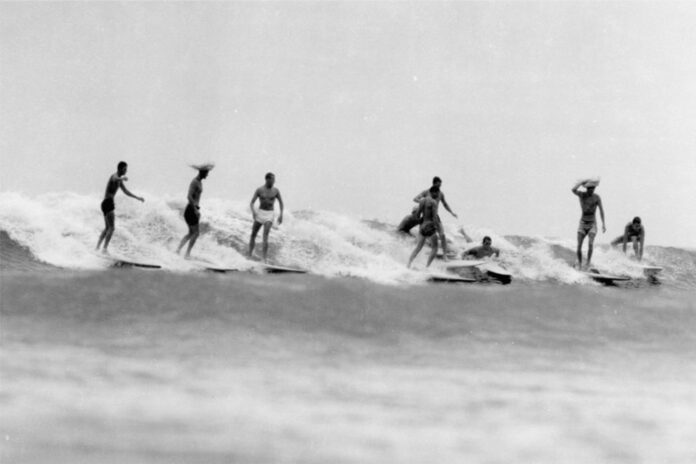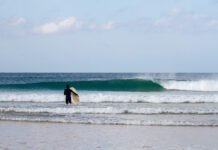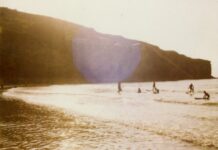Speaking of the aforementioned region, the chapter you wrote deals with the history and dynamics of the surfing culture in Cape Naturaliste, epitomised in the local surf tribe, the “Cape Crusaders”. One of the characteristics of this particular surfing tribe, and the central theme of the chapter, is the presence of surf tourism both in its inception and its development, exemplified by one of your interviewees in how “the annual surf trip is an important part of our local surfing culture, a great way to escape winter.” Besides the adventurous spirit and the winter migratory flight, what makes Cape Naturaliste a [unique] surfing tribe – what makes a “Cape Crusader”?
In the research, I discovered that the typical Cape Naturaliste surfer identifies himself/herself as a tribal member, and identifies with others in their tribe. They know the local surfers, they know their environment. They connect with the ecology of the region. One of the interesting aspects that turned up in the investigation was the importance of the sense of belonging to the surfing tribe. Moreover, understanding the reality of surfing hierarchies, and where you fit into that pecking order. Interviewing folks from Yallingup, and from 30 kilometres down Caves Road at Margaret River, it was really interesting to see the existence of two distinctive surfing tribes, that were not only separated by time and space, but by their values and practice in the field. The two groups of surfers were all aware of the existence of two separate surfing tribes, and they did suggest a sense of competition or friendly rivalry existed between the tribes. By and large, surfers like to be identified as tribal members, and I’m sure that is not unique to the Cape Crusaders.
From a broader point of view, what have your observations told you about what propels surfers who have great waves at their doorsteps (besides ubiquitous craving for the perfect wave) to travel halfway across the world?
I touched on this in the opening question, with travel being a tool for learning. In surf related tourism, the spirit of adventure is king. Surfers are typically adventurous spirits, and travelling to exotic locations is a key adventure element. I mentioned Rip Curl’s ‘The Search’ marketing campaign in my work, and in my opinion, that concept indeed epitomised scratching the surfers’ itch. Travelling with your mates to exotic places, chasing perfect waves, promotes experiences and enables stories to unfold. Travel really is multifaceted – it’s about the anticipation of the mission, living the journey and then reliving that memory, the good and/or the bad. The photos and videos are vehicles to share those times, but the stories, the narrative that you share with your surfing mates is a wonderful ingredient on the surf travel recipe. I think perhaps that becomes more apparent and more important with age. Maybe that is part of the surf travellers’ wisdom.





